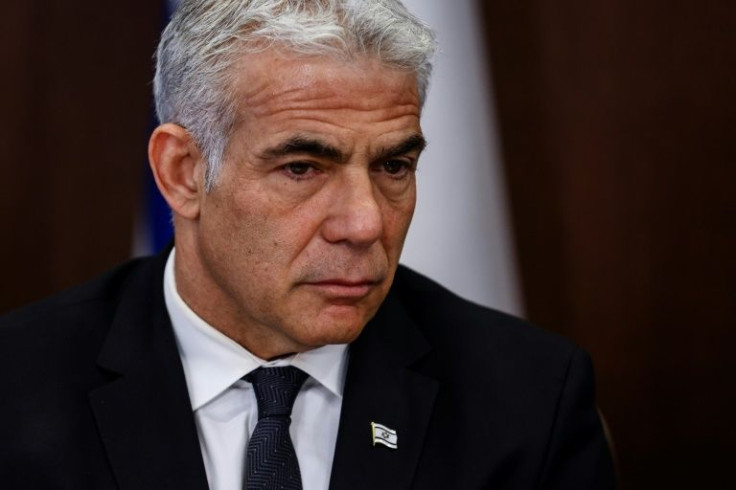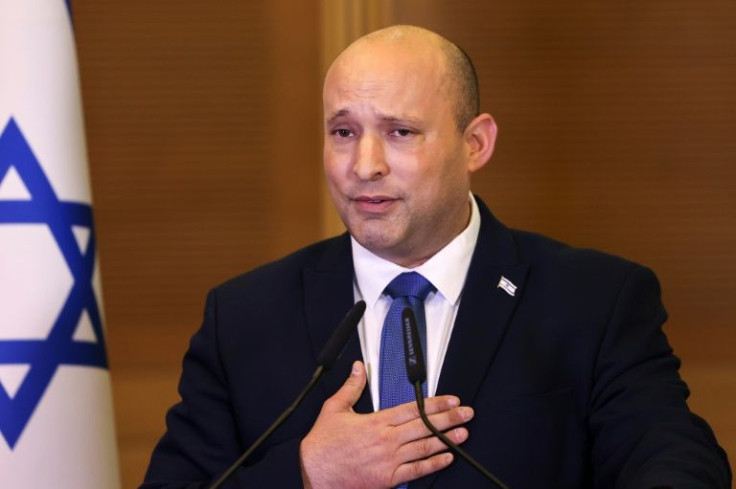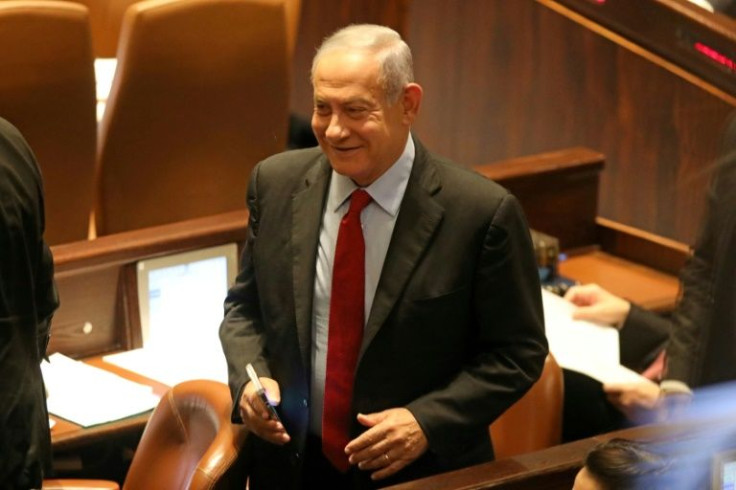Israel Parliament Dissolves, Sets Fifth Election In Less Than Four Years
Israeli lawmakers dissolved parliament on Thursday, forcing the country's fifth election in less than four years, with Foreign Minister Yair Lapid set to take over as caretaker prime minister at midnight.
After the unanimous 92-0 vote, the centrist Lapid embraced outgoing Prime Minister Naftali Bennett, whose year in charge of an unwieldy, eight-party coalition was ultimately undone by its ideological divisions.

Lapid, whose Hungarian-born father survived the Holocaust, went immediately from parliament to Jerusalem's Yad Vashem Holocaust memorial centre.
"There, I promised my late father that I will always keep Israel strong and capable of defending itself and protecting its children," the 58-year-old said in a statement.
The newly-called election, set for November 1, marks another sign that Israel remains mired in an unprecedented era of political gridlock, with early opinion polls indicating the results may again be inconclusive.

The religious nationalist Bennett, who has said he was stepping back from politics, hosted Lapid for a short transition ceremony.
"I hand over to you the responsibility for the State of Israel," Bennett said to Lapid, who called the outgoing premier "a good man and an excellent prime minister."
"This is not a farewell ceremony because (I have) no intention to take leave of you," Lapid further said.

Hawkish former prime minister Benjamin Netanyahu has assured that he and his allies -- extreme-right nationalists and ultra-Orthodox Jewish parties -- will finally rally a majority, following what he described on Thursday as a "failed (coalition) experiment".
"We are the only alternative. A strong, nationalist, responsible government," said Netanyahu, who is on trial over corruption charges he denies.

Regarded by both allies and critics as a tireless political brawler, Netanyahu was already campaigning Thursday, telling shoppers at a Jerusalem mall that combatting rising living costs -- which he blamed on Bennett's "bad government" -- will be his "first mission" after returning to office.
Lapid meanwhile held talks with President Isaac Herzog, who said Israelis being sent back to the polls for a fifth time since April 2019 was "very unhealthy for the country," while praising Lapid's "considerable political skill."

For Yonahan Plesner, president of the Israel Democracy Institute think-tank, yet another general election highlights Israel's "deeply polarised reality".
The only solution to such "dysfunction," he said, were "long-over-due electoral and constitutional reforms".
The November vote will in part be a contest between Netanyahu and Lapid, a former TV news anchor and celebrity who has surprised many since being dismissed as a lightweight when he entered politics a decade ago.
Lapid was the architect of the Bennett-led motley alliance that took office in June 2021, ending Netanyahu's record 12 consecutive years in power and passing Israel's first state budget since 2018.
Bennett led a coalition of right-wingers, centrists, doves and Islamists from the Raam faction, which made history by becoming the first Arab party to support an Israeli government since the Jewish state's creation in 1948.
Raam party chief Mansour Abbas faced backlash from some Arabs, but on Thursday defended his decision to take part in Israeli governance.
"We succeeded in pushing ourselves as a political force," Abbas said.
He added that Raam would continue advocating for Arab society, making sure that issues like poor living conditions for his Bedouin constituents were "on the table rather than underneath it".
The coalition came apart last week after some Arab lawmakers refused to renew a measure that ensures Jewish settlers in the occupied West Bank live under Israeli law. Palestinians in the territory are subject to Israeli military rule.
For Bennett, a staunch supporter of settlements, allowing the so-called West Bank law to expire was intolerable. Dissolving parliament before its June 30 expiration temporarily renews the measure.
He will stay on as alternate prime minister responsible for Iran policy, as world powers take steps to revive stalled talks on the Islamic republic's nuclear programme.
Israel opposes a restoration of the 2015 agreement that gave its arch foe sanctions relief in exchange for limits on its nuclear programme.
Lapid will retain his foreign minister title while serving as Israel's 14th premier. He will find himself under an early scrutiny, with US President Joe Biden due in Jerusalem in two weeks.
© Copyright AFP 2024. All rights reserved.







